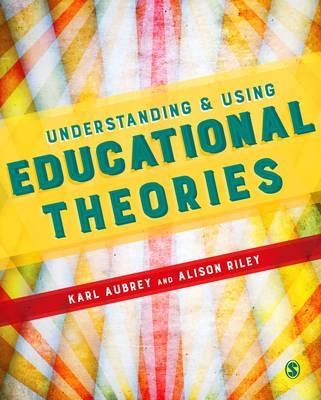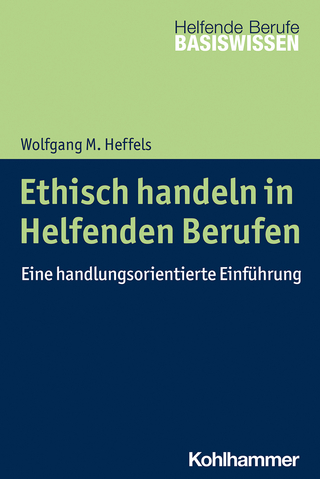
Understanding and Using Educational Theories
SAGE Publications Ltd (Verlag)
978-1-4739-0590-0 (ISBN)
- Titel erscheint in neuer Auflage
- Artikel merken
" I expect that this book will equip and inspire students to engage first-hand with the texts of these creative and influential educational writers."-David Aldridge, Programme Lead: Professional Education, Oxford Brookes University
If you’re training to teach or studying education a clear understanding of major educational theories and the thinkers behind them is essential in order to appreciate how different practices impact on learning.
This textbook gives you a clear overview of the most influential twentieth and twenty-first century thinkers on education, including established names (including Vygotsky, Bruner, Dewey), more recent writers (such as Freire, Kolb, Claxton) and many other important theorists whose writings have helped shaped our views on teaching and learning.
Each chapter includes:
Practical examples showing how theories can be used to inform classroom teaching
Critiques of each theorist exploring opposing viewpoints and the strengths and weaknesses of different ideas
Reflective tasks inviting you to apply what you’ve read to your own educational experiences
Did you know about the exciting new companion title?
Take students to the next level in learning theories - take a look at companion title Understanding and Using Challenging Educational Theories
Karl Aubrey is a Visiting Tutor on the Professional Studies in Education programmes at Bishop Grosseteste University. Prior to this Karl was the Programme Leader for a range of initial teacher education and professional development programmes at a large city further education college. Between 2003 and 2005 he was seconded to the DfES Standards Unit as a learning and teaching practitioner in the East Midlands. Karl has contributed to the Oxford Dictionary of Education. His doctoral thesis explored the reforms in further education teacher education from 2000 to 2010, from the viewpoint of teacher educators. Karl’s research interests include inclusion, education policy, pedagogy and work-based learning. Alison Riley is the Programme Leader for the BA(Hons) Early Childhood Studies degree at Bishop Grosseteste University, she has also worked on a number of educational-related programmes at the university including initial teaching training courses. Prior to joining Bishop Grosseteste University Alison spent sixteen years working in primary education, as a classroom teacher, deputy head teacher and finally head teacher of a large junior school. Alison has been involved in a number of collaborative projects and has recently been involved in an EU-funded project researching ‘Creativity in Early Science and Mathematics Education’. Alison has recently commenced doctoral studies in which she is researching the journey of students entering higher education with alternative qualifications.
John Dewey: A democratic notion of learning
Maria Montessori: Liberating the child
Jean Piaget: Understanding the mind of the child
Lev Vygotsky: An early social constructivist viewpoint
B.F. Skinner: The father of operant conditioning
Benjamin Bloom: Learning through taxonomies
Malcolm S. Knowles: Contextualising adult learning
Jerome Bruner: An evolution of learning theories
Urie Bronfenbrenner: The ecology of human development
Paulo Freire: Oppression, freedom and critical approaches to education
Donald Schön: Reflection and learning
David Kolb: Experiential Learning Theory
Jean Lave and Etienne Wenger: Socially situated learning and communities of practice
Guy Claxton: Learning power
| Verlagsort | London |
|---|---|
| Sprache | englisch |
| Maße | 186 x 232 mm |
| Gewicht | 180 g |
| Themenwelt | Sozialwissenschaften ► Pädagogik ► Allgemeines / Lexika |
| Sozialwissenschaften ► Pädagogik ► Bildungstheorie | |
| Sozialwissenschaften ► Pädagogik ► Vorschulpädagogik | |
| ISBN-10 | 1-4739-0590-7 / 1473905907 |
| ISBN-13 | 978-1-4739-0590-0 / 9781473905900 |
| Zustand | Neuware |
| Haben Sie eine Frage zum Produkt? |
aus dem Bereich



